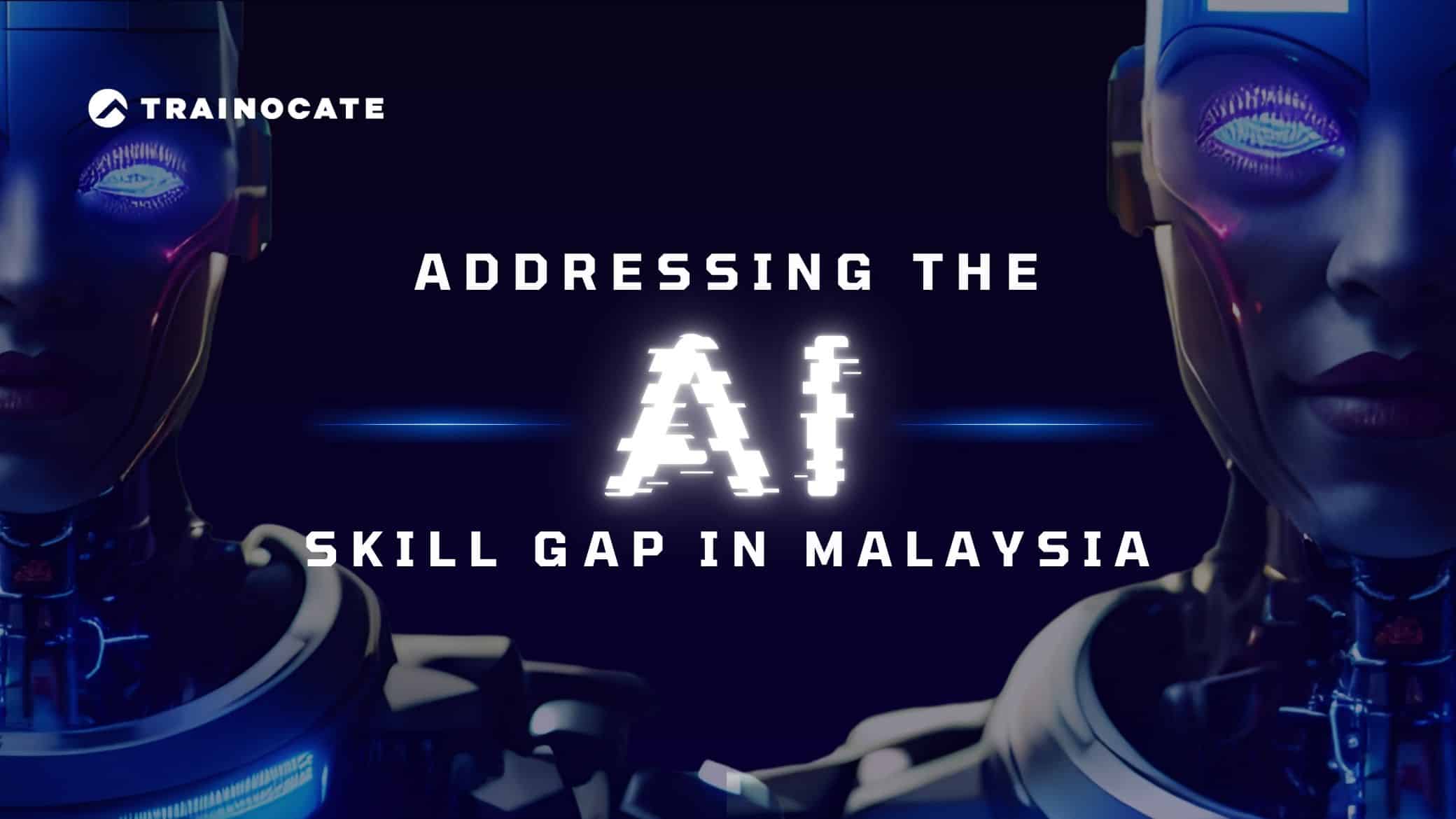Addressing the AI Skills Gap in Malaysia
Addressing the AI Skills Gap in Malaysia
Understanding the AI Skills Gap
The AI skills gap refers to the discrepancy between the growing need for AI-trained professionals and the availability of talent capable of fulfilling these roles. The Randstad enterprise technology 2024 report reveals that AI expertise is increasingly vital in sectors like cybersecurity and cloud computing, yet the demand far exceeds the local supply.
Factors Contributing to the Skills Gap
- Rapid Technological Evolution: AI technology is advancing at a pace that many organizations struggle to match. According to Randstad Malaysia’s 2024 Employer Brand Research, while AI adoption is growing, businesses face significant challenges in integrating these technologies due to a shortage of AI-skilled professionals and structured training programs. This gap is particularly evident in AI readiness across generations (Randstad’s 2024 employer branding report).
- Educational Gaps: While Malaysian universities are expanding their tech-related programs, many still lack dedicated AI training. This gap in foundational AI skills leaves graduates without the specialized expertise required by employers in fields such as natural language processing and predictive analytics (Digital News Asia).
- Low Adoption Rates Among Businesses: Randstad’s 2024 employer branding report highlights that only a fraction of Malaysian businesses are fully prepared to adopt AI systems. The shortage of skilled AI professionals hinders widespread adoption, as companies lack the in-house capabilities needed to implement AI solutions. Consequently, AI integration is uneven across sectors, with certain industries lagging in digital transformation efforts
AI in Malaysian Workplaces: Current Trends
Despite the gap, AI use in Malaysia is gradually expanding. Recent findings from the 2024 Work Trend Index by Microsoft and LinkedIn indicate that 84% of Malaysian knowledge workers are already using AI at work, demonstrating widespread adoption, particularly for improving productivity, creativity, and time management. The report also highlights that Malaysian employees are actively embracing AI tools despite limited organizational support.
Source: 2024 Work Trend Index Annual Report from Microsoft and LinkedIn
Younger generations, particularly Gen Z and Millennials, are more frequent users of AI tools like Microsoft Copilot, leveraging them for creativity, productivity, and workload management. Meanwhile, 42% of Gen X workers and a striking 73% of Baby Boomers have never used AI in their work.
Randstad Malaysia supported that 34% of Malaysian employees have never engaged with AI tools at work, highlighting a generational disparity and an ongoing need for skills development across all age groups.
Key Sectors Affected
Cybersecurity:
The integration of AI in cybersecurity is crucial as businesses seek to protect themselves from rising cyber threats. The shortage of AI professionals in Malaysia’s cybersecurity sector has led to a critical demand for experts in Governance, Risk, and Compliance (GRC), with specialized certifications such as CISM and CISSP in high demand (2024 talent trends research | IT & technology).
Data Science and Analytics:
As data-driven decision-making becomes central to business strategies, Malaysia faces a growing demand for roles such as data analysts, data engineers, and machine learning engineers. These positions are essential for integrating data into AI-driven products and services. Organizations are increasingly seeking domain experts with industry-specific experience in fields like finance and marketing, further raising the bar for these roles. This shift emphasizes the need for specialized skills in data integration and AI applications (The Inside Story of Technology In Malaysia).
Cloud Computing:
According to Hays, cloud engineers are expected to also function as DevOps specialists and site reliability engineers, bridging gaps in infrastructure automation and application performance. AI plays a pivotal role in optimizing cloud operations, such as: (The Inside Story of Technology In Malaysia)

Automation:
Predictive Maintenance:
Enhanced Security:
AI augments cybersecurity within cloud platforms by identifying vulnerabilities and mitigating risks in real time.
Challenges in Talent Availability
Hays highlights a significant talent shortage in Malaysia for dual-role professionals combining expertise in cloud computing and AI. The demand for these hybrid roles has led to companies considering international hires or investing in upskilling programs for existing teams. Certifications like AWS Certified Solutions Architect and Microsoft Azure AI Engineer are particularly valued, signaling the importance of cross-functional expertise in AI and cloud services.
Boost Your AI and Cloud Knowledge with a Free Virtual Training by Alibaba
Economic Impact of the AI Skills Gap
The shortage of AI-trained professionals in Malaysia not only affects individual businesses but also poses challenges for the nation’s broader digital transformation efforts.
The skills gap slows the adoption of emerging technologies like AI and automation, reducing organizational efficiency and hindering Malaysia’s ability to compete globally (Randstad’s 2024 employer branding report). The lack of available talent may also deter foreign investors who prioritize markets with a well-prepared workforce, further emphasizing the need for a robust talent pipeline (Randstad Technology Market and Talent).
Effects on Business Competitiveness
Malaysian businesses may struggle to remain competitive without AI-skilled employees. According to LinkedIn’s 2024 Work Trend Index, 60% of employers believe that their organization needs to adopt AI to stay competitive. However, from the same report, it is claimed that over half of these leaders worry that their organization is unprepared to execute AI implementation.
Employment Trends and Salary Pressure
To attract the limited AI talent, Malaysian companies are often forced to increase salaries.
According to Randstad Malaysia’s market outlook salary guide report, professionals with AI expertise – in particular high growth areas like AI and big data – can expect a salary increase of 15 to 35 percent when switching employers, highlighting the high demand and competition for these skills.
Initiatives to Bridge the AI Skills Gap
Government-Led Initiatives

In May 2024, Microsoft announced a significant investment of US$2.2 billion in Malaysia over the next four years. This investment focuses on developing cloud and AI infrastructure, establishing a national AI Centre of Excellence, and providing AI training to 200,000 Malaysians.

Besides, Amazon Web Services (AWS) launched Malaysia’s first cloud infrastructure region in 2024, marking a major milestone in the nation’s cloud computing landscape. This new infrastructure region is part of AWS’s broader strategy to enhance cloud accessibility, improve latency, and provide secure, scalable cloud solutions for businesses and government agencies in Southeast Asia. This initiative aligns closely with Malaysia’s MyDIGITAL blueprint, which aims to accelerate the adoption of cloud computing and position the country as a preferred destination for digital investment. The AWS region also supports sustainability efforts by incorporating energy-efficient data centres and renewable energy projects.
In May 2024, Google announced a monumental RM9.4 billion investment in Malaysia to strengthen its digital infrastructure (The Star). This investment includes plans to build data centres, enhance connectivity, and deploy Google Cloud solutions tailored to local businesses and industries. A key focus of Google’s efforts is enabling digital transformation for small and medium enterprises (SMEs) and promoting inclusive growth by bridging the digital divide (The Star). Google’s investment is expected to create high-value jobs, stimulate innovation, and solidify Malaysia’s position as a regional hub for digital services and technology development (The Star).

In October 2024, Oracle announced a substantial investment exceeding US$6.5 billion to establish its first public cloud region in Malaysia. This initiative aims to bolster the country’s digital economy and drive AI-powered innovation. The planned cloud region will offer over 150 infrastructure and Software-as-a-Service (SaaS) services, including Oracle Autonomous Database, HeatWave MySQL Database Service, Oracle Cloud VMware Solution, and Oracle Fusion Cloud Applications Suite. These services are designed to help Malaysian organizations modernize applications, migrate various workloads to the cloud, and leverage data analytics and AI. This investment aligns with Malaysia’s New Industrial Master Plan 2030, which envisions the creation of 3,000 smart factories by 2030.

Malaysia has also seen substantial growth in data centre development. As of 2024, there are 86 data centres across 11 markets in the country, with notable concentrations in Cyberjaya and Johor Bahru (Data Centre Map). For instance, Telekom Malaysia’s wholesale arm, TM Global, announced plans to expand its core data centres in Cyberjaya and Johor to meet the growing demand for data hosting services (Developing Telecoms).
Education and Corporate Training
Malaysian institutions are actively updating AI and digital skills curricula through partnerships with major tech firms.
Microsoft’s AI TEACH Malaysia and Ready4AI&Security programs aim to upskill technical and vocational education students, as well as women, by enhancing AI fluency and cybersecurity skills These efforts are part of Microsoft’s broader ASEAN initiative to equip 2.5 million individuals with AI skills by 2025, including 200,000 Malaysians (Microsoft News Asia).
AWS and Microsoft are notable contributors in Malaysia’s corporate AI training, investing in workforce development through infrastructure and training programs. For example, AWS Academy collaborates with educational institutions globally, including Malaysia, to prepare students for cloud-related careers, while Microsoft’s initiatives aim to drive both AI and cybersecurity adoption across industries (Techtrade Asia).
Enhancing Skill Development for Long-Term Growth
By emphasizing skill development, Malaysia can close the AI skills gap, enabling the country to attract investment, boost innovation, and maintain its competitive edge globally. As AI continues to evolve, a workforce equipped with these skills will be essential for ensuring Malaysia’s economic resilience and success.
Final Thoughts
Addressing the AI skills gap is more than just filling open roles—it’s about future-proofing Malaysia’s economy. As AI reshapes industries worldwide, an AI-trained workforce will position Malaysia as a leader in digital transformation, fostering innovation and attracting foreign investment. Through collective efforts from the government, private sector, and educational institutions, Malaysia can harness AI to achieve significant economic advancements.
Frequently Asked Questions (FAQs)
1. What is the AI skills gap, and why is it important for Malaysia?
The AI skills gap refers to the shortage of trained professionals with the necessary skills to meet the growing demand for AI expertise. This gap is significant for Malaysia as the country aims to become a digital-first economy. Addressing this skills gap is essential to ensure Malaysia’s competitiveness in the global digital landscape.
2. What sectors in Malaysia are most affected by the AI skills gap?
The AI skills gap impacts several sectors, including cybersecurity, data science, and cloud computing. These areas require specialized AI skills to drive innovation, protect against cyber threats, and enable data-driven decision-making.
3. What are the main causes of the AI skills gap in Malaysia?
The skills gap is caused by rapid technological advancements, limitations in educational programs, and low adoption rates of AI among businesses. These factors create a gap between the demand for AI professionals and the available local talent.
4. How does the AI skills gap impact Malaysia’s economy?
The skills gap slows down Malaysia’s digital transformation and may reduce the country’s attractiveness for foreign investment. It also pressures local businesses, as they may struggle to stay competitive without skilled AI professionals, which can impact overall economic growth.







